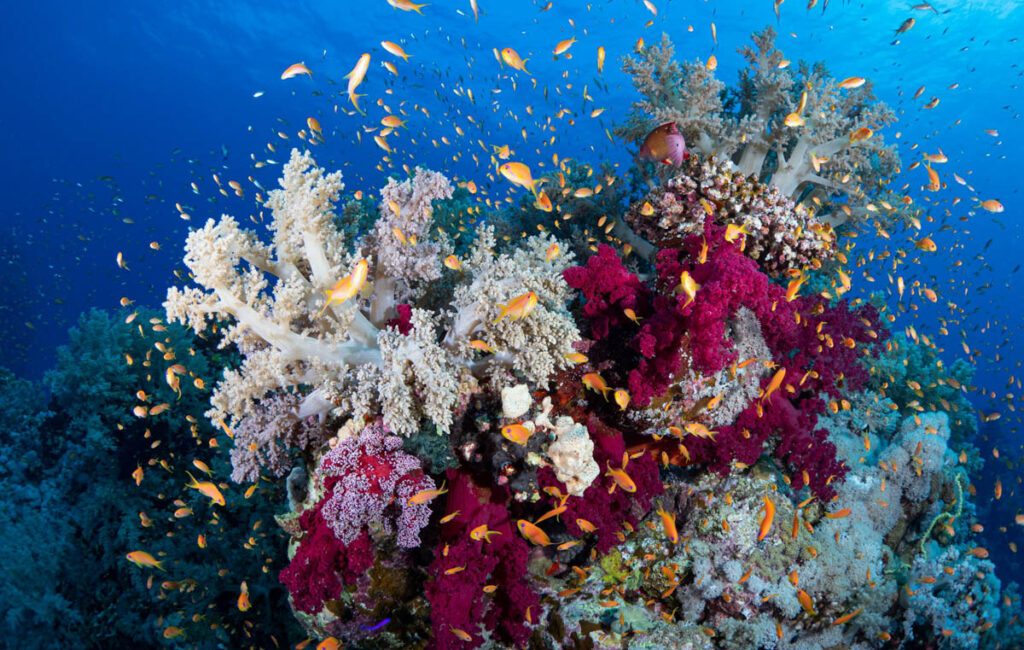Marine conservation tourism has become one of the diving world’s most powerful narratives. Divers sign up for turtle monitoring, coral gardening, whale shark tagging, beach cleanups, and volunteer programs that promise a chance to protect the ocean. The idea is compelling. The reality is far more complex.
Around the world, conservation travel can fund important research and provide essential manpower for struggling marine projects. It can also create its own environmental footprint, distort local economies, and unintentionally harm the very ecosystems it claims to protect. Understanding this balance is essential for every responsible diver.
This is the hard truth about marine conservation tourism. It can be an incredible force for good when done properly, but only if divers know how to separate genuine conservation from clever marketing.
The Rise of Conservation as a Travel Product
Conservation used to be a specialised field handled by marine biologists, NGOs, and local authorities. Today, it has become a major part of the tourism economy. Tour operators highlight sustainability. Resorts promote reef nurseries to attract eco-minded guests. Volunteer programs blend diving holidays with scientific activities.
The growth reflects a real passion among divers who want to help protect ocean life. It also reflects a growing global awareness that marine ecosystems are under pressure. Organisations such as the International Union for Conservation of Nature and UNESCO continually warn that coral reefs, seagrass beds, sharks, rays, and iconic megafauna face increasing threats from warming waters, pollution, overfishing, and habitat loss.
This is why conservation tourism feels like a natural extension of a diver’s sense of responsibility. Yet the rapid commercialisation of “eco-friendly travel” has created a landscape that ranges from excellent programs to misleading ones.
When Conservation Tourism Works
The best conservation tourism initiatives are rooted in science, built on genuine community partnership, and designed to create measurable outcomes rather than photo opportunities.
Examples include:
- Coral nurseries that restore degraded reefs using proven replanting methods
- Shark monitoring programs that contribute real data to long-term population studies
- Whale and dolphin encounters regulated by strict distance and behavioural guidelines
- Community-managed marine reserves where tourism income directly funds protection
- Plastic reduction schemes and mangrove planting projects with documented ecological benefits
Successful programs typically collaborate with recognised research bodies or NGOs. They employ trained staff. They track results. They focus on education, long-term stewardship, and scientific value. Divers leave with new skills and a stronger understanding of marine ecology.
These operations demonstrate that conservation tourism can work. They prove that divers can play an active role in positive change.
When Conservation Becomes a Sales Pitch
The problem is not conservation tourism itself. The problem is how easily it can be misrepresented.
Poorly designed programs often:
- Replant coral in unsuitable locations with no scientific management
- Disturb marine life through uncontrolled interaction
- Use volunteers to replace paid local workers
- Invite divers to participate in research without proper training
- Promote “adopt a reef” systems with no measurable outcomes
- Greenwash ordinary dive packages by marketing them as eco travel
Some conservation packages offer little more than a feel-good experience. The tasks may have limited scientific value. The funding may be poorly distributed. The impact may be insignificant or even negative.
Greenwashing has become an industry problem. With no universal standards, operators can describe almost anything as sustainable or conservation focused. This puts the responsibility on divers to research programs carefully, ask the right questions, and look beyond promotional language.
The Environmental Footprint Nobody Talks About
There is a paradox within conservation tourism. Travelling across the world to save the ocean creates its own carbon cost. Long-haul flights contribute to climate change, which remains one of the most significant threats to coral reefs. Additional pressure is placed on small coastal communities that may struggle to manage waste, freshwater supply, or increased infrastructure.
Conservation benefits must be weighed against the environmental footprint of each trip. This does not invalidate the industry, but it does mean that divers should choose their destinations with intention, support local conservation where possible, and select programs with genuine ecological value.
Local Communities at the Heart of the Conversation
The strongest conservation efforts always involve local people. Community knowledge, cultural traditions, and economic needs shape the success of marine protection. When conservation projects sideline the community, they create friction or dependency rather than empowerment.
Local guides, scientists, and stakeholders should be leading the work. Tourists should support these efforts, not steer them. When conservation travel channels money into local schools, reef protection zones, and sustainable livelihoods, it becomes a long-term asset rather than a seasonal attraction.
How Divers Can Choose Responsible Conservation Experiences
There are several questions every diver should ask before booking a conservation trip.
- Does the program partner with recognised scientific or environmental organisations
- Does the work contribute measurable data or long-term outcomes
- Are local communities active participants
- Are the activities based on established conservation techniques
- Is there transparency about how fees are used
- Is the marine life treated with respect and proper distancing
- Does the program publish results or annual reports
A responsible operator will always be open about training, methodology, funding, and scientific value.
Conservation Tourism Needs Divers, but It Needs the Right Kind
Marine conservation tourism is neither a miracle cure nor a marketing gimmick. It sits somewhere in between. It can be one of the most rewarding experiences a diver ever has, but only if the program is authentic and scientifically grounded.
True ocean protection requires long-term commitment, community involvement, and collaboration with organisations dedicated to marine science. Divers who choose carefully can contribute to meaningful progress and help shape a more sustainable future for underwater ecosystems.
This is the hard truth. Conservation tourism can change the ocean, but only if divers approach it with clear eyes and informed decisions.
THE SCUBA NEWS Link !
DemirHindiSG 17 Kasım 2025-16:08





